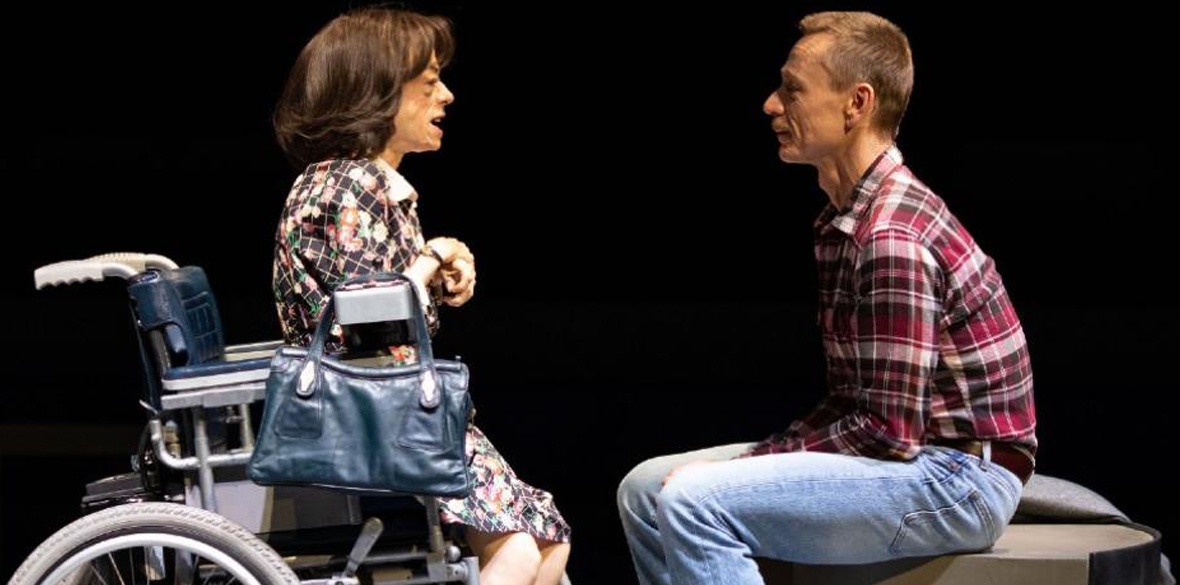This is the last article you can read this month
You can read more article this month
You can read more articles this month
Sorry your limit is up for this month
Reset on:
Please help support the Morning Star by subscribing here
The Normal Heart
Olivier Theatre
SHORTLY after being expelled from Gay Men’s Health Crisis, the organisation he had co-founded, and before creating Act-Up, the immensely influential direct action group which was the fore-runner of Outrage! in Britain, Larry Kramer wrote a play.
It seems incredible that he found the time and had the talent for it when he was the single individual most responsible for raising awareness of Aids in the US, for challenging the homophobia of both state and society, for embarrassing and galvanising medical research and for making a change and saving millions of lives.
It is as though Peter Tatchell had found the time to dramatise the personalities and issues of the infamous Bermondsey by-election, and come up with a Brechtian masterpiece.
Situated inside the maelstrom of ignorance and bigotry of the early 1980s, The Normal Heart is proof of the extraordinary cultural contribution that gay men have made to society, even as they were being written off and left to die by a hostile culture that rejected them as promiscuous and hyper-sexualised flotsam.
The play premiered in 1985. At the time it must have felt like angry agit-prop, and a dangerously self-indulgent exercise.
The main character is Ned Weeks, who never leaves the stage, and is a self-portrait of Kramer himself.
But with the benefit of hindsight and a thrilling, touch-perfect performance by Ben Daniels, the character becomes a modern archetype: the activist.
The play itself is a study of the steps by which the activist discovers his vocation, temperament and method.
You have to remind yourself that this was the very first play about Aids because it establishes the paradigm for so many others, from the movies Philadelphia and Milk, to Russell T Davies’s It’s A Sin.
They are all narratives in which a major character dies far too young, but Kramer’s way of telling the story remains unsurpassed.
This is partly because the ensemble of characters are so well observed and believable, from Danny Lee Wynter’s hilarious turn as the camp conciliator Tommy Boatwright and Liz Carr’s steely force of intellect as the Polio-stricken Dr Brooker, to Daniel Monk’s portrayal of the appalled Gay Liberationist Mickey Markus, who breaks down as he recognises that a sexually transmitted disease has undone his life’s work.
It is partly because the play is always at pains to point out its resemblance to reality and its situation in historical time.
But it is mostly because this now familiar narrative is situated within a dramatic structure that is entirely committed and political. As such, and unlike the others, it stands alone as an inspiring study of leadership and treachery in times of plague.
The production is brisk, precise, often funny and very moving. But it is more than that: it is a demonstration of righteous anger fired by compassion, a human quality that we are invited to witness.
It received a standing ovation from the audience that was entirely deserved. Unmissable.
Ends November 6 2021.










